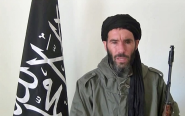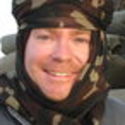-
About
- About Listly
- Community & Support
- Howto
- Chrome Extension
- Bookmarklet
- WordPress Plugin
- Listly Premium
- Privacy
- Terms
- DMCA Copyright
- © 2010-2025 Boomy Labs


Islamists warned that the French intervention in Mali would "open the gates of hell", and the job of fulfilling that dire prediction appears to have fallen to a veteran, one-eyed jihadist-cum-gangster called Mokhtar Belmokhtar.

No wonder the Algerians stubbornly refused to help the French in their Mali adventure. No amount of French government pressure last year could persuade President Abdulaziz Bouteflika – which means the Algerian army – to march into the deserts of its southern neighbour and engage in battle once more with its al-Qa’ida opponents and their allies. But Algeria’s enemies – and, of course, France’s enemies – came to Algeria yesterday, turning the Algerian desert into another battleground. Foreigners, two of them reported dead, 41 held hostage on the In Amenas gas field, Algerian troops surrounding both the prisoners and their captors; it sounds like a replay of Algeria’s own 1990s civil war. And if precedent is anything to go by, don’t bet on a happy ending.

The news that eight foreign workers have been kidnapped from an Algerian gas plant in the east of the country has been linked to Mali as French troops are poised to engage Islamist rebels. The abductions are the latest in a series of attacks thought to be carried out by Sahel militants.

Since the French military intervention in Mali, known as Operation Serval, began last week, the internet has been buzzing with talk about its motives. Is France really only trying to contain a terr...

Global oil markets, under pressure from increased North American production, are facing the return of a familiar upside risk - the threat of supply disruption from North Africa.

Dubbed the “Uncatchable” by French intelligence in 2002, Belmokhtar has operated as a critical facilitator and amir of the Sahara and Sahel regions for Algerian groups including the Groupe Islamique Armée (GIA), the Groupe Salafiste pour la Prédication et le Combat (GSPC), and al-Qaeda in the Islamic Maghreb (AQIM).

The rush of violent events has masked the fact that officials in Washington still have only an impressionistic understanding of the militant groups that have established a safe haven in Mali.

BAMAKO, Mali (AP) — An Algerian-born jihadist who heads one of the most powerful and feared cells of al-Qaida's North African branch has decided to leave the al-Qaida franchise in order to create a movement spanning the entire Sahara desert, said one of his close associates and a local official who had been briefed on the matter on Monday.Moktar Belmoktar, formerly the head of a cell of al-Qaida in the Islamic Maghreb, is one of the most prolific kidnappers operating in Mali's lawless north. He is linked to the abduction of a group of tourists in 2003 in southern Algeria, as well as the top United Nations diplomat in Niger, Robert Fowler, who was grabbed on the side of a road in 2008.The deputy mayor of a town in the Timbuktu region of northern Mali, who spoke on condition of anonymity out of fear for his safety, confirmed that AQIM "katiba," or cell, leader Belmoktar had left the al-Qaida franchise. The information was confirmed by Oumar Ould Hamaha, an associate of Belmoktar's, who was reached by telephone at an undisclosed location in northern Mali."It's true," said Hamaha. "It's so that we can better operate in the field that we have left this group which is tied to the 'Maghreb' appellation. We want to enlarge our zone of operation throughout the entire Sahara, going from Niger through to Chad and Burkina Faso."Hamaha said, however, that while he and Belmoktar have left the North African branch, they remain under the orders of al-Qaida central.AQIM evolved from an Algerian jihadist group, which was pushed by security forces south across the border into Mali in 2003. The group appeared to be floundering, losing members and on the run, until it sealed a deal with al-Qaida's central command, becoming the terror franchise's branch in the Maghreb region of Africa, a term that refers to North African countries including Algeria.For most of its existence though, AQIM's main base of operation has been inside Mali, which is not a Maghrebian country. Until this spring, the cells operated in the country's deserts, in dense forests and in a system of subterranean caves that recall the terrain of Afghanistan. Then in April, following a coup in Mali's capital, a mixture of rebel groups including AQIM seized Mali's northern half, giving them de facto control over the cities and allowing them to operate openly.The announcement indicates that al-Qaida is setting its sights on a larger zone of operation. So far AQIM has conducted raids into Mauritania and Niger, but has not been able to establish long-term bases there. And the terror franchise has never operated in Chad, according to security experts.In New York this month, diplomats are meeting to discuss plans for a military intervention in order to take back northern Mali. United States Secretary of State Hillary Rodham Clinton has described the presence of these terror groups in northern Mali as a "powder keg."___Associated Press writer Rukmini Callimachi contributed to this report from Dakar, Senegal.

The French intervene to push back jihadis in Mali -- to their credit and at others' peril.
